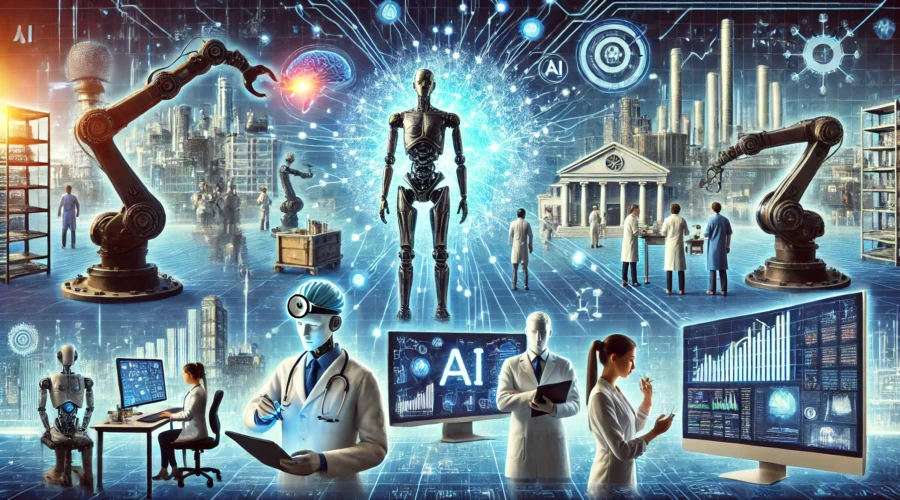Artificial Intelligence: Transforming Industries and Society in the Digital Age
The Rise of Artificial Intelligence and Its Impact on Society
Artificial Intelligence (AI) has become one of the most transformative technologies of the 21st century. From automating tasks to revolutionizing industries, AI, machine learning, and automation are reshaping the way we work, live, and interact with technology. This blog explores the latest advancements in AI and their impact on various sectors of society.
The Evolution of AI
AI has evolved from simple rule-based systems to sophisticated deep learning models capable of mimicking human intelligence. Innovations such as natural language processing (NLP), computer vision, and reinforcement learning have enabled AI to understand, analyze, and generate human-like responses. Technologies like OpenAI’s ChatGPT and Google’s DeepMind have set new benchmarks in AI capabilities.
AI in Various Industries
1. Healthcare
- AI-powered diagnostic tools assist doctors in detecting diseases early and improving treatment plans.
- Robotics and automation are being used in surgeries, reducing human error and enhancing precision.
- AI chatbots and virtual assistants provide mental health support and improve patient engagement.
2. Finance
- AI-driven algorithms analyze vast datasets to detect fraudulent activities and enhance security.
- Robo-advisors provide personalized investment strategies, making financial planning more accessible.
- Automated trading systems execute trades at high speeds, optimizing returns for investors.
3. Retail and E-commerce
- AI-powered recommendation systems enhance customer experience by suggesting relevant products.
- Chatbots and virtual assistants improve customer service and streamline operations.
- Inventory management systems powered by AI optimize supply chain efficiency.
4. Manufacturing and Automation
- AI-driven robots are revolutionizing production lines, reducing costs and increasing efficiency.
- Predictive maintenance using AI helps in reducing downtime and improving productivity.
- Smart factories leverage IoT and AI to optimize operations and resource utilization.
5. Education
- AI-driven personalized learning adapts to individual student needs, improving learning outcomes.
- Automated grading systems save time for educators and provide instant feedback to students.
- Virtual tutors and AI-driven course recommendations enhance online learning platforms.
Ethical and Societal Implications
While AI offers immense benefits, it also raises concerns regarding ethics, privacy, and job displacement. Some key challenges include:
- Bias in AI models: AI systems trained on biased data can perpetuate discrimination and unfair practices.
- Data privacy concerns: AI’s ability to analyze vast amounts of personal data raises security and ethical concerns.
- Job automation: AI-driven automation is replacing jobs in various sectors, necessitating workforce reskilling and adaptation.
The Future of AI
As AI continues to evolve, researchers and policymakers must work together to ensure responsible AI development. Future advancements may include more explainable AI systems, improved human-AI collaboration, and increased regulations to address ethical concerns.
AI is not just a technological revolution but a societal transformation. By leveraging its potential while addressing challenges, we can create a future where AI benefits humanity as a whole. Stay tuned for more insights into the ever-evolving world of artificial intelligence!

